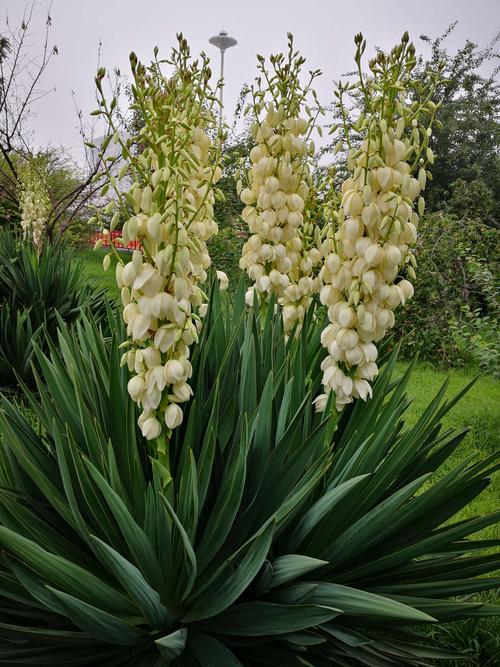Yucca baccata seed

Yucca baccata (Banana Yucca) Overview
Description
Yucca baccata, commonly known as Banana Yucca, is a striking perennial shrub native to the southwestern United States, particularly in arid desert regions. This plant is part of the Asparagaceae family and is well-known for its robust, sword-like leaves that grow in a dense rosette pattern. It produces tall, spiky Flower stalks with creamy white, bell-shaped flowers, typically appearing in late spring to early summer. The plant can reach a height of 1 to 2 meters and produces a distinctive, banana-like fruit that gives it its common name. These fleshy, oval-shaped fruits are edible and have a sweet taste when ripe.
Ecological Role and Habitat
Banana Yucca thrives in harsh desert environments, preferring dry, sandy soils with good drainage. It is often found in desert shrublands, scrub, and woodlands at elevations of up to 2,000 meters. The plant is well-adapted to the region’s extreme conditions, where it can endure long periods of drought and survive temperatures ranging from freezing to over 100°F (38°C). Yucca baccata plays an essential role in desert ecosystems by stabilizing soil and providing a habitat for local wildlife. It attracts a variety of pollinators, including yucca moths, which play a critical role in its reproduction.
Uses and Benefits
- Culinary: The fruit of Yucca baccata is edible, and traditionally, Native American tribes have used it as a food source. The ripe fruit has a sweet, somewhat banana-like taste and is often roasted or boiled for consumption. The seeds can also be ground into flour.
- Traditional and Medicinal Uses: In traditional medicine, various parts of the plant, including the roots, have been used to treat ailments such as arthritis, skin wounds, and digestive issues. The fibers extracted from the leaves are strong and have been used to make ropes, baskets, and sandals.
- Landscaping: Due to its drought resistance and striking appearance, Yucca baccata is often used in xeriscaping and desert landscaping. It adds architectural interest to rock gardens and desert-themed landscapes.
- Wildlife: The plant’s flowers attract pollinators like bees and hummingbirds, while the fruits provide food for small mammals and birds. Its tough, fibrous leaves also offer shelter to desert creatures.
Environmental Benefits
Yucca baccata’s role in stabilizing soil is particularly important in desert ecosystems, where wind erosion can be a significant concern. Its deep root system helps hold the soil together, reducing the risk of sand and soil displacement. Additionally, its ability to thrive in nutrient-poor soils and extreme conditions makes it an ideal plant for improving biodiversity in harsh environments.
In conclusion, Yucca baccata is a versatile and valuable plant with a range of uses from culinary to ecological benefits. Its adaptation to desert conditions, ability to support local wildlife, and historical importance in traditional cultures highlight its significance beyond just being an ornamental plant. Whether used in landscaping or for its edible fruits and fibers, Banana Yucca continues to be an important part of the natural and cultural landscape of the southwestern United States.
